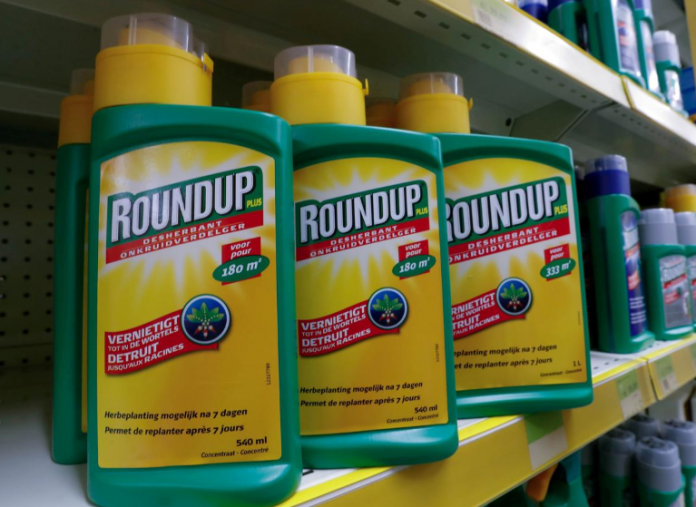NEW YORK: Bayer AG is set to face a second US jury over allegations that its popular glyphosate-based weed killer Roundup causes cancer, six months after the company’s share price was rocked by a $289 million verdict in California state court.
A lawsuit by California resident Edwin Hardeman against the company was scheduled to begin on Monday in federal rather than state court. The trial is also a test case for a larger litigation. More than 760 of the 9,300 Roundup cases nationwide are consolidated in the federal court in San Francisco that is hearing Hardeman’s case.
Bayer denies all allegations that Roundup or glyphosate cause cancer, saying decades of independent studies have shown the world’s most widely used weed killer to be safe for human use and noting that regulators around the world have approved the product.
Under a January ruling by US District Judge Vince Chhabria, who presides over the federal litigation, jurors in Hardeman’s case will not initially hear all the evidence presented in last year’s California trial.
Chhabria called evidence by plaintiffs that the company allegedly attempted to influence regulators and manipulate public opinion “a distraction” from the science in the cases. He said such evidence should only go before the jury in a second trial phase that would only take place if they determined Roundup caused Hardeman’s cancer.
Evidence of corporate misconduct was seen as playing a key role in the finding by a California state court jury in August that Roundup caused another man’s non-Hodgkin’s lymphoma and that Bayer’s Monsanto unit failed to warn consumers about the weed killer’s cancer risks. That jury’s $289 million damages award was later reduced to $78 million.
Bayer’s share price dropped 10 per cent following the verdict and has remained volatile.
Hardeman began using the Roundup brand herbicide with glyphosate in the 1980s to control poison oak and weeds on his property and sprayed “large volumes” of the chemical for many years on a regular basis, according to court documents. He was diagnosed with non-Hodgkin’s lymphoma, a cancer of the lymph system, in February 2015 and filed his lawsuit a year later.
But Hardeman has a history of hepatitis C, a risk factor for developing lymphoma. Bayer in court filings also said the majority of non-Hodgkin’s lymphoma incidents are idiopathic, or have no known cause.
Plaintiffs criticized Chhabria’s order dividing the trial and restricting evidence as “unfair,” saying their scientific evidence allegedly showing glyphosate causes cancer is inextricably linked to Monsanto’s alleged wrongful conduct.




